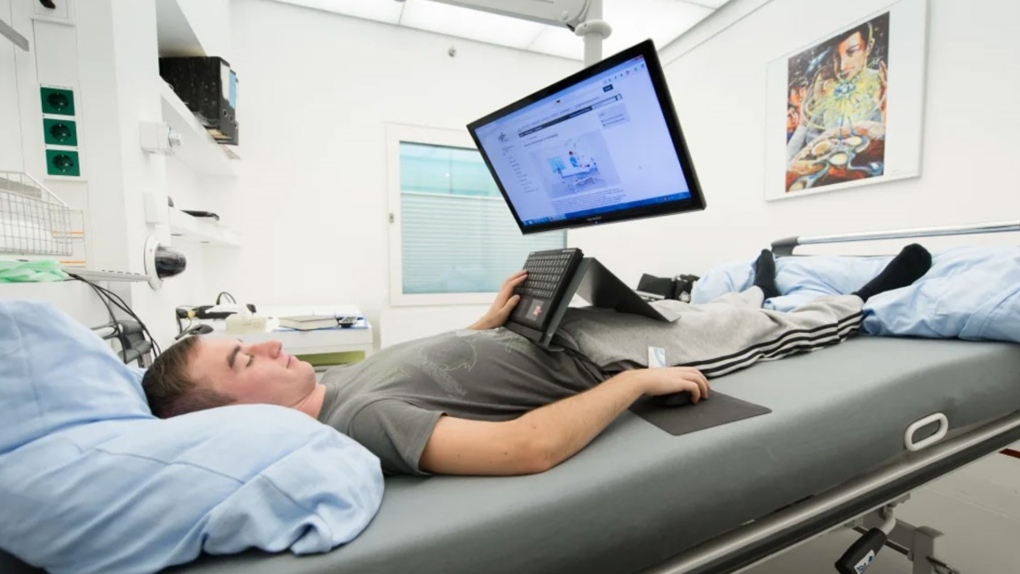Calgary researcher part of team studying bed rest for space exploration

April 12 marks the International Day of Human Space Flight, but a Calgary biologist at Mount Royal University is looking into the impacts of exploring the stars through a study being done much closer to the ground.
Dr. Nick Strzalkowski is studying skin sensitivity changes in participants who will spend 60 days in head-down bed rest, all to better understand sensory adaptations that occur during space flight.
He’s part of a team that will simulate a microgravity environment to help astronauts adapt to ongoing physiological changes.
“For one, your blood and all the fluids flow towards the head, and so this causes astronauts to have puffy faces. It puts stress on the optic nerve in the eye, the heart loses muscle and they lose blood volume, so there’s lots of challenges,” he said.
“This is all simulated in the head-down bed rest posture, and also your vestibular system, the sensors in your head telling you about gravity, is also disrupted in space. So, we’re thinking that the disruption of the vestibular system is related to the changes in skin feedback that we’re seeing.”
At the University of Guelph, Strzalkowski obtained his PhD under the supervision of Dr. Leah Bent, who studies neurophysiology and is the primary investigator in this latest project funded by the Canadian Space Agency.
The research itself will be conducted this fall in Cologne, Germany, at the German Aerospace Center in collaboration with NASA.
Twelve participants will spend 88 days at the lab, in which 60 days will be spent lying in bed, mimicking the shift of fluids that the human body experiences in space.
The participants will be divided into groups including a control group that will do nothing, a group that will have muscle electrical stimulation occur on their legs and a proprioception group to which a wobble board will be used to balance and more stimulation will be applied.
“So with these different groups, we’re going to look at how those interventions might change how they’re flexible or sensitive,” Strzalkowski said.
“But this is also part of a much larger international team, where there are dozens of primary investigators measuring everything you can imagine from bone health, muscle health, cognitive function, sleep, gut microbiome and the list goes on.”
The work will also involve MRU undergraduate students in data analysis.
While the immediate goal is to help astronauts, Strzalkowski says there are also findings in this research that aim to help those who are bedridden here on Earth.
“The research does spin off and impacts humans back here on Earth, so people may not realize but every day, we’re interacting with technology and medical advancements that have come from the space sector.”
View original article here Source









